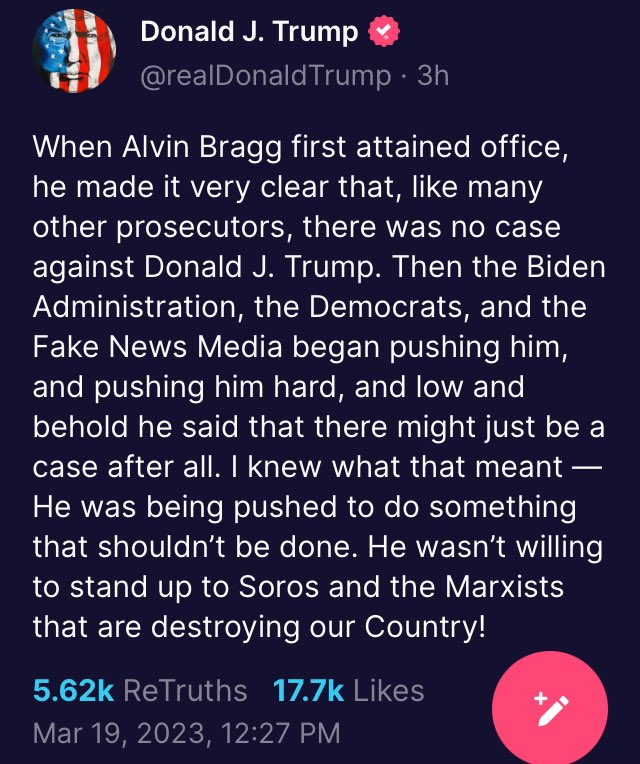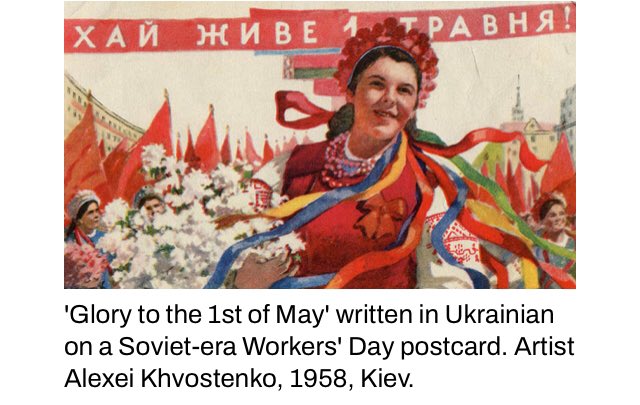
America’s efforts to block oil & gas pipelines from #Russia date back to #JFK, who pressured #NATO allies into an embargo of the Friendship pipeline in 1962.
This 2019 Radio Free Europe article on #NordStream2’s construction is quite telling indeed… rferl.org/a/us-efforts-s…
This 2019 Radio Free Europe article on #NordStream2’s construction is quite telling indeed… rferl.org/a/us-efforts-s…
#JFK’s 1962 embargo on oil pipes and pipeline technology marked a foundational decision that became a template for future #USSR-USA conflicts, as shown by the embargo on pipeline technologies in the early 1980s by Ronald #Reaganʼs government to halt the Trans-Siberian pipeline.
Let’s go back to the summer of 1961, when — in the words of US delegates at #NATO — the main discursive line was that European countriesʼ Soviet oil & gas trade was allegedly imperiling the security the entire Western bloc.
The Friendship pipeline was a threat, the U.S. said.
The Friendship pipeline was a threat, the U.S. said.
To what extent American fears reflected genuine security concerns isn’t clear.
More likely, the available evidence suggests it was rather the disguised commercial interests of US oil companies like Gulf Oil & Texaco.
More likely, the available evidence suggests it was rather the disguised commercial interests of US oil companies like Gulf Oil & Texaco.
During the NATO debate, the US commercial oil & gas interests were never named, but their presence lingered in the discussions and is revealed by the constant contacts between the American representatives and officers from powerful US energy companies.
Indeed in 1963, the World Petroleum review admitted that the first demand to use NATO and US diplomatic channels to restrict trade in oil between the West and the USSR had been made in November 1960 at an annual meeting of the American Petroleum Institute.
Gulf Oilʼs President, Ernest Brockett, and Jersey Standardʼs President, Monroe Rathbone, recommended a NATO agreement on a list of strategic materials — the sale of which to #Russia would be prohibited — including those allowing them to complete their Friendship pipeline project.
According to NATO documents, the embargo hurt the Soviet pipeline project badly.
NATO noted the furious reaction of the Soviet Prime Minister, Nikita #Khrushchev, in a television speech on February 27, 1963, where he vehemently attacked the embargo.
NATO noted the furious reaction of the Soviet Prime Minister, Nikita #Khrushchev, in a television speech on February 27, 1963, where he vehemently attacked the embargo.
In addition the Soviets also complained to Germany, and the blockade was extensively covered in the Soviet media.
The embargo seems to have been successful only to a limited extent: the construction of the pipeline system was indeed delayed, but by only one year.
The embargo seems to have been successful only to a limited extent: the construction of the pipeline system was indeed delayed, but by only one year.
Scheduled to be completed in late 1963, the Friendship pipeline system was only completed in late 1964.
The measure adopted by NATO was not able to stop Soviet oil exports to Western Europe either, as these continued to increase in the early 1960s.
The measure adopted by NATO was not able to stop Soviet oil exports to Western Europe either, as these continued to increase in the early 1960s.
The Druzhba (aka “Friendship”) pipeline is one of the world's longest oil pipelines and one of the largest oil pipeline networks in the world today. It runs from Siberia, through #Ukraine, to Europe.
Next year will mark 60 years of continuous operation of the pipeline.
Next year will mark 60 years of continuous operation of the pipeline.
More info on #JFK & NATO’s failed embargo by Roberto Cantoni, author of Oil Exploration, Diplomacy, and Security in the Early Cold War:
hal.science/hal-01291854/d…
hal.science/hal-01291854/d…
Just as President Kennedy and NATO’s efforts to stall the Friendship oil pipeline in 1962 ultimately failed, so too did President Reagan’s efforts 20 years later with the Trans-Siberian natural gas pipeline.
When sanctions failed to stop that pipeline the CIA simply blew it up!
When sanctions failed to stop that pipeline the CIA simply blew it up!
Despite the CIA’s success at sabotaging the Trans-Siberian natural gas pipeline — causing the largest non-nuclear explosion ever recorded on planet earth in 1982 — the pipeline was repaired quickly and back online by 1984.
lailluminator.com/2022/02/14/how…
lailluminator.com/2022/02/14/how…
Considering that all NATO’s efforts over the past 60 years to halt the sale of Russian energy exports to Europe (using everything from sanctions to sabotage) have failed, does the West really think that it will work this time with #Nordstream?
What’s the definition of insanity?
What’s the definition of insanity?
George Ball, senior State Dep’t official during the administrations of #JFK and #LBJ, asserted in 1982 that Reagan's policy would actually serve #Moscow's interests by sowing division in NATO.
You could substitute the word #Biden for Reagan below: same dumb policy, new century!
You could substitute the word #Biden for Reagan below: same dumb policy, new century!

Anyone who digs a little into the history of German-Russian energy relations (read my series of reports on #NordStream) will find nothing new under the sun.
#Biden, like #Trump before him, is continuing a long tradition
of sanctions and sabotage against Russian pipelines.
#Biden, like #Trump before him, is continuing a long tradition
of sanctions and sabotage against Russian pipelines.
What started with #JFK never really ended.
It has only escalated over the decades since with each new major pipeline project, under Republican and Democratic presidents — #ColdWar or hot war — whether we were dealing with the Soviet Union or the Russian Federation.
It has only escalated over the decades since with each new major pipeline project, under Republican and Democratic presidents — #ColdWar or hot war — whether we were dealing with the Soviet Union or the Russian Federation.
The history of German-Russian energy relations is also a history of the German-American conflict.
Every US president since 1946 tried to prevent closer economic relations between Germany and Russia, using similar arguments and sometimes tough tactics like blowing up pipelines.
Every US president since 1946 tried to prevent closer economic relations between Germany and Russia, using similar arguments and sometimes tough tactics like blowing up pipelines.
Recommended research:
Mittel- und Osteuropa Jahrbuch 2020, published on 17 June 2020 by German Eastern Business Association.
Version in English: ost-ausschuss.de/sites/default/…
Version in German: oaoev.de/de/50-jahre-ro…
Mittel- und Osteuropa Jahrbuch 2020, published on 17 June 2020 by German Eastern Business Association.
Version in English: ost-ausschuss.de/sites/default/…
Version in German: oaoev.de/de/50-jahre-ro…
While pressuring our NATO Allies to stall the Russian Friendship pipeline wasn’t #JFK’s best diplomatic hour, at least he never actually blew up a Russian pipeline! 💥
But #Reagan actually DID do that, in 1982, when his CIA sabotaged the Trans-Siberian natural gas pipeline.
But #Reagan actually DID do that, in 1982, when his CIA sabotaged the Trans-Siberian natural gas pipeline.
If you’re not familiar with this episode, you’re not alone: the US government never admitted that we blew up the Trans-Siberian pipeline until after Reagan’s death in 2004, when those involved began to talk.
Learn more about the prelude to the #NordstreamSabotage here:
Learn more about the prelude to the #NordstreamSabotage here:
https://twitter.com/reallorispencer/status/1626191991343140864
Watch my 90 minute film exploring the CIA’s sabotage of the Trans-Siberian pipeline in 1982, and how this was a blueprint for the attack on #Nordstream in 2022.
rumble.com/v2cs55s-bombsh…
rumble.com/v2cs55s-bombsh…
Secretary of State #Blinken certainly knows all about the Trans-Siberian pipeline story.
He literally wrote a book about it back in 1987, while still a student at Harvard.
He literally wrote a book about it back in 1987, while still a student at Harvard.

Former #JFK Under Secretary of State George Ball said it best in his 1982 piece for the New York Times when he wrote that our long history of sabotaging Russian pipelines demonstrates “an astonishing ignorance of the past.”
Our ignorance of the past is why these events repeat.
Our ignorance of the past is why these events repeat.
• • •
Missing some Tweet in this thread? You can try to
force a refresh
 Read on Twitter
Read on Twitter












